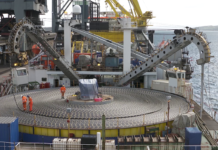A new report finds that energy security and rising costs are impacting competitiveness for UK industry, so how could decentralised energy be made more accessible?
Industry barriers to decentralised energy strategies must be addressed, amid rising costs and fears over energy security, concludes a new report by Aggreko.
Bridging the Energy Gap highlights the findings of a survey of 200 key energy decision makers from industry and shows that energy security remains a major or significant concern for most respondents (82%). Reducing energy consumption is also viewed as a medium or high priority for the vast majority (94%).
Knowledge gap
Despite energy prices continuing to rise, knowledge over what interim and affordable energy solutions are currently available is still required. Some 55% of respondents said energy prices are impacting their competitiveness, while 26% of companies surveyed said energy costs constitute 10-20% of their operating costs.
Despite these high costs, 38% had an investment for new equipment to reduce energy consumption turned down in the past five years due to capex restrictions.
Aggreko’s report points out that many energy users across industry are now finding themselves caught between a desire to reduce their costs and environmental impact, while also navigating the technical and financial issues these solutions must solve.
The report also looks at attitudes to short-term lowering of electricity demand in return for lower tariffs, or demand-side response. The survey found that 57% of respondents are accessing lower electricity tariffs in return for a short-term lowering of demand. Nevertheless, this still leaves 40% who have no such system in place. So, what exactly are the barriers to adoption to demand-side response?
DSR concerns
More than two-thirds responded that their main concerns related to the impact that demand-side response would have on their business operations. This concern is particularly acute in the manufacturing sector, with more than two-thirds (68%) citing production concerns as a key barrier. A further 22% said they lacked the technical resources to implement a DSR solution, with only 9% highlighting that they found it too difficult to understand the potential costs and benefits.
The panel were also asked for their views on generating their own energy. The responses suggested that many remain reluctant to actively consider alternative methods of generating electricity, with 43% reporting that they had not considered their own electricity generation.
The survey further examined the reasons why decentralised energy technologies have not been adopted and found that prohibitively high investment costs was the most commonly cited reason (49%). The panel of industry leaders overwhelmingly identified solar (56%) as the technology with the greatest potential, with gas generation (18%) trailing behind – along with CHP (14%).
The report highlights that by hiring solutions instead of purchasing them, companies could enjoy the benefits of decentralised energy without being bound by capex restrictions. It also suggests that hiring can help energy users avoid the long payback periods which may otherwise deter them from implementing new, energy-efficiency technology and decentralised energy solutions.
With this in mind, the report proposes viewing hire as a means to bridging the gap between current overreliance on the national grid and a future where the majority of electricity is generated on site. By doing so, companies can more easily access innovative, secure and environmentally friendly technologies that could offer immediate savings.
“The statistics from this report show that UK industry requires some education in how it can benefit from secure, cost-effective and efficient decentralised energy solutions,” says Chris Rason, Aggreko managing director, Northern Europe. “We hope our findings show how there is an opportunity for more companies to implement a decentralised energy option and using hiring as a bridging gap solution does not require a significant capital outlay.”
Download the report, at: www.aggreko.com/energygap


